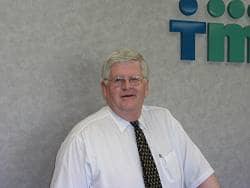By Dave Harrington, PhD
On May 26, 1982, I opened a session for the biomedical engineering presentations delivered at the ELECTRO/82 conference in Boston. Here is the opening paragraph. See if you think it still applies:
“To not credit the engineering profession for contributing to an increase in life expectancy and improved quality of life, would be wrong. To not indict the engineering profession for the lack of knowledge of the users of its technology, would also be wrong.”
Here we are some 36 years later, and we, as a profession, still have problems understanding what is needed and why. To put it simply we need to better connect with our users and suppliers.
We have learned the language of the users, mostly, and we can put into words, and writing, what it is they need from us in terms of the medical devices, in order to better treat their patients, while at the same time allowing them to hold down costs improve the results.
What we have to do now is to convey those needs to our suppliers of technology products so that they actually understand what is needed to fix and maintain the medical equipment in our facilities—not just the parts and equipment their bean counters tell us is needed in order to increase their profits.
From the Top
But it is not just the manufacturers and vendors that are soaking up money. As sad as it may seem, one just needs to take a look at the hospital food chain to see where a lot of the profits go, which is generally not in the clinical engineering budget, much less the pockets of the HTM team.
A recent article in the newspaper I read often stated that the average CEO of a hospital in the Boston area was paid $8.5 million in the last fiscal year while sitting in the C-suite looking down at us poor workers fighting to get the funding to buy the parts we need to repair and maintain the medical equipment. (I, for one, have come to the conclusion that the “C” in C-suite stands for “clueless.”)
So, it has become our job to make miracles happen with small budgets, do the paperwork for no-need testing requirements, and be prepared to be seagulled when a problem occurs—even if it is not yours.
What can we do to better manage the technology that is so very important in healthcare?
In a word: communicate.
Make every effort to communicate better with those in your HTM/CE department. Communicate with the clinicians who are the users of the devices. Communicate with housekeeping. It is surprising, really, how many good ideas they have on improving the movement of medical devices because they are the ones who have to maneuver around all of the hooks, cords, and plugs that seem to have been added to devices over the years as they clean a patient’s room.
As an HTM/CE manager, you also need to work with the finance people to make sure that the hospital is not being overcharged on repair parts. Unfortunately, I have seen too many occurrences where Materials gets one price on a repair part, only to find the invoice coming in 30 days later calls for a higher amount to be paid. (If that happens to you, then it’s probably time to bounce that supplier from your vendor list.)
Careful What You Wish For
Over the years, I have had the honor of writing several Soapbox articles like this one, on a wide variety of topics. I ask each of you to think about doing a Soapbox article, as they are less than 1,000 words and are on one topic, generally.
There have been several articles on how we use our time, especially now that some of us have retired, but not actually told anyone. We do enough to get by, but we can do so much more. So many people become bored within weeks of retirement, especially those who retire early.
The patients, your co-workers, and your contacts, all need you to be part of their lives. So be careful on retirement timing and make sure that your spouse or a buddy is going to be available to hang out with when you do finally call it a day.
If not, you may wind up writing Soapbox articles like me; not so much retired, as just not collecting a check for the work that I do.
Editor’s note: Have something you want to get off your chest? Submit your Soapbox submissions to [email protected].
Dave Harrington, PhD, is a healthcare consultant in Medway, Mass. For more information, contact [email protected].




